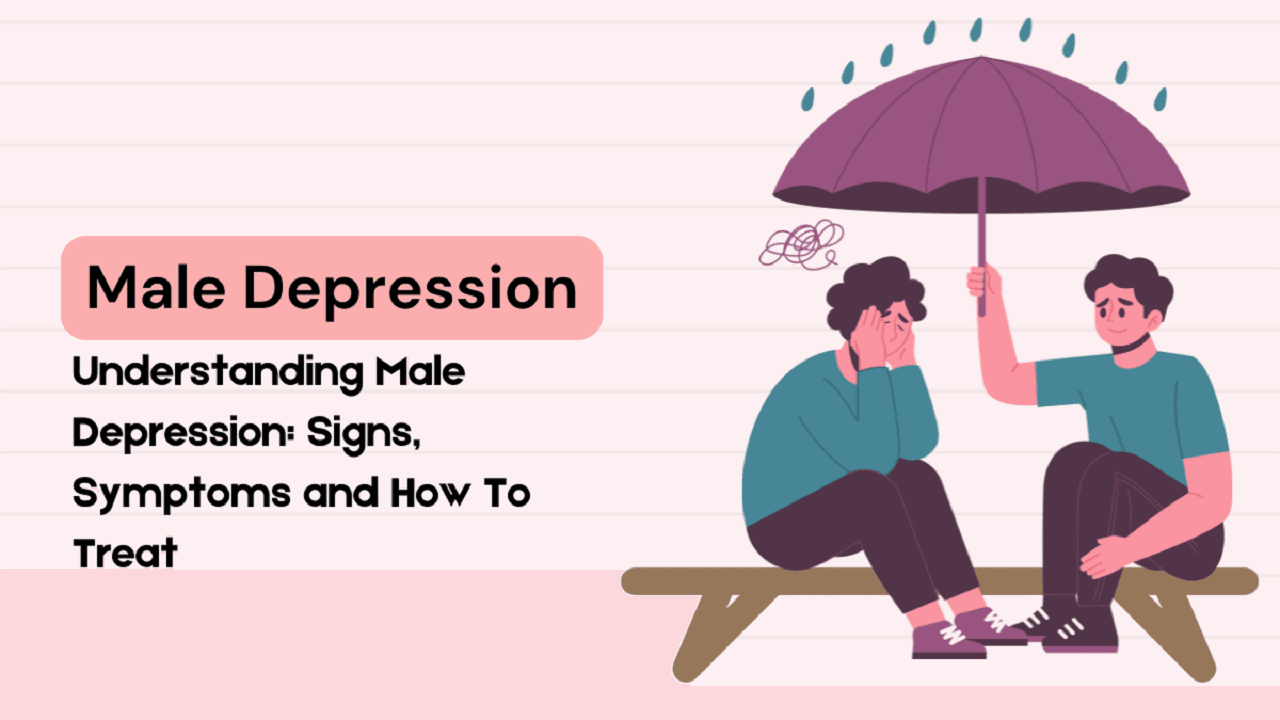Introduction:
Cardiovascular disease is still among the leading killer diseases affecting men globally. WHO also approximates that there is approximately 31% of all deaths globally caused by cardiovascular diseases. With statistics like these it is imperative to consider ways to improve heart health. A potential candidate for further research is omega-3 fatty acids which present many different benefits for the body, especially for the cardiovascular system. This article features a special overview on omega-3 for men’s heart health. its manner of working, the studies conducted, and even ways to elevate your omega-3 consumption through diet.
What Are Omega-3?

Omega-3s fatty acids are unsaturated fats that human body cannot synthesize and therefore must be purchased from the market from time to time. There are three primary types:
- ALA (Alpha-Linolenic Acid): It is mainly prevalent in plant foods including flaxseeds and walnut.
- EPA (Eicosapentaenoic Acid): Include fish such as salmon and mackeral, these being some of the groups of fish that contain the omega three fatty acids.
- DHA (Docosahexaenoic Acid): Also mainly existing in fish and plays crucial roles in building brain and heart tissues.
They are all related for the maintenance of good heart health but omega 3s are still needed is a diet.
Sources of Omega-3s:

It may not be so hard to get omega-3s in your diet The omega-3 fatty acids are particularly easy to incorporate into ones diet as they exist in many foods. Here are some common sources:
- Fatty Fish: The main sources of EPA and DHA are fish such as salmon, mackerel, sardines and herrings.
- Plant-Based Sources: Some of the ALA rich foods include flax seeds, chia seeds, and walnuts.
- Supplements: For people who cannot take omega-3s through diet well enough in a day, then fish oil and algae oil are ideal.
The Impact of Omega-3 on Heart Health:
Cardiovascular Benefits:
Many research publications report the cardioprotective effects of omega-3s fatty acids. Here are some key findings:
- Triglyceride Reduction: Omega-3s also may reduce triglyceride level in the blood. It is well understood that increased levels of triglycerides are one form of blood lipid profile that gives a nod to heart diseases. A study reported in the Journal of Clinical Lipidology also showed that daily consumption of omega-3s lowered the triglyceride levels.
- Blood Pressure Improvement: There is an important meta-analysis published in The American Journal of Cardiology, of course, which showed that omega-3 can reduce blood pressure by a relatively small degree, though this might be important for men with hypertension.
- Endothelial Function: Omega-3 enhances the functioning of the endothelium – the thin cells and tissue in blood vessels. A study in Circulation points to the fact that omega-3s bulky up the endothelia and thereby lower the chance of heart attack or stroke.
- Anti-Inflammatory Effects: Kronik lies is associated with cardiovascular disease. Omega-3s decrease inflammation within the body, which is useful to the heart. According to one research published in The Journal of Nutrition, omega-3s were substantially able to reduce inflammation levels.
Evidence from Research:
When it comes to the actual benefits of omega-3s in heart health, the literature is quite compelling. For instance, a large cohort study done on the men and women, published in JAMA Internal Medicine, that used higher dietary omega-3 intake to show lower probabilities of cardiovascular events among 20,000 study participants. In particular, the proportion of consumed omega-3 was inversely related to the risk of myocardial infarction; the highest consumption of omega-3s was associated with 30% lower risk compared to the group with the lowest consumption of the mentioned PUFA.
Another research in The New England Journal of Medicine established that patients with history of heart disease should take omega-3s supplements, would reduce their rate of dying from cardiovascular conditions by 25%.
Omega-3s and Men’s Specific Heart Health Concerns:
Age-Related Heart Issues:
Statistically, with the years that men add, the probabilities of possessing heart diseases also rise. With age their cholesterol levels can rise, blood pressure may increase along with increase in the stiffness of arteries. These effects can be possibly offset by Omega-3s. A study conducted in the European Heart Journal also found that older male populations enjoyed reduced incidents of heart disease, where omega-3s consumed were relatively high.
Common Conditions:
Men are often at higher risk for specific heart conditions, including:
- High Cholesterol: Omega-3s can reduce and prevent dangerous cholesterol and can increase the good types of cholesterol. Men who consumed high cholesterol were described in the scientific publication: Atherosclerosis to have benefited from the omega-3s supplementation as it enhanced their lipid quantity.
- Hypertension: This food supplement is associated with steady reduction in blood pressure owing to omega-3 component. In Hypertension a systematic review of RCTs stated that omega-3 fatty acids had the potential to decrease systolic as well as diastolic blood pressure.
- Arrhythmias: Omega-3s might help regulate the heartbeat. The study in Heart Rhythm noted that patients taking omega-3s supplements had fewer episodes of arrhythmias than patients with heart disease.
How to Incorporate Omega-3s into Your Diet:
Dietary Recommendations:
Men have to ensure that they take at least two portions of fatty fish per week for the best heart health. This means between 500-1000mg of EPA+DHA per day, according to the American Heart Association and other health related bodies.
Here are some easy ways to add omega-3-rich foods to your diet:
- Breakfast: Snack on some flaxseed or chia seeds by sprinkling on your smoothie in the morning or on oatmeal.
- Lunch: Add a salad dressed with walnut or a can fish tuna salad because of their rich omega-3 fatty acids.
- Dinner: Saute, grill or bake oily fish such as salmon, mackerel among others at least two times in a week.
Supplement Considerations:
Unfortunately if you’re not able to get enough of these fatty acids through diet, supplements prove to be a feasible choice. Here are some tips for choosing quality omega-3 supplements:
- Type of Omega-3: It is advised to go for supplements that contain EPA and DHA as they are very effective in improving your health condition of the heart.
- Purity and Quality: Select proper brands that analyze for such chemicals like mercury.
- Dosage: A health care provider should be consulted to find out the correct dosages in relation to the person’s health condition.
Potential Side Effects and Considerations:
While omega-3s offer numerous benefits, it’s essential to consider potential side effects and interactions:
- Bleeding Risk: Omega-3 fatty acid may also have an impact on coagulation because large doses of the supplement can lead to bleeding problems in the logistical chain of blood thinners. This was despite a study conducted in Thrombosis and Haemostasis that showed that those who took high-dose omega-3s were prone to increased bleeding episodes.
- Gastrointestinal Issues: A few people may compound stomach upsets or even nausea, diarrhea while taking omega-3 capsules. Fortunately, all these side effects can be countered by beginning treatment with a lower dose.
- Interactions with Medications: Omega-3s should not be taken with anticoagulants and can be contraindicated with some blood pressure medications. While the benefits attributed to protein powders cannot be disputed, good health advice should never be procured without asking an expert, especially one in the medical field, before taking any new powdery supplements.
Real-Life Success Stories:
Case Study 1: John’s Transformation:
Consequently, John, a 55-year-old male, with a past medical history of high cholesterol, was motivated to increase his intake of omega-3 in view of high levels of triglycerides detected during a health check. He started taking at least three servings of fatty fish in a week, together with fish oil capsules on a daily basis. In six months, his cardiovascular risk factors decreased with triglycerides decreasing to 30 percent. His doctor pointed out that vital signs in John’s heart were improved, and the chances of the man developing cardiovascular diseases decreased.
Case Study 2: Mike’s Journey:
Mike is a chic 48-year-old man who also complained of having high blood pressure that could barely be regulated with medicine. When he learned the concept of omega-3s, he changed his diet by featuring chia seeds, flax-seed oil, and fatty fish. In total the Hypertension decreased on average by 10 mmHg within a three month period for Mike. His doctor was amazed and suggested the patient to keep up with this diet alongside the treatment.
Conclusion:
It would appear that the intake of omega-3s in a person’s diet affects the cardiovascular health of men. Omega-3s lower triglycerides and offer other advantages that relate to healthier blood pressure and general heart health that cannot be ignored. Observations from research studies, and case histories, support the fact that the promise of raising the levels of omega-3 in consumers’ diets is good news for the heart as well as to their overall wellbeing.
If you decide you want to change the way you eat, please see your doctor to get some advice. When you commit yourself to getting more omega-3s, you are actively supporting the health of your heart well into the future.

1. What are the primary sources of omega-3 fatty acids?
These are found in foods like fish especially, mackerel, salmon and other fish product, acad Gibbs; flax seeds, chia seeds, omega-3 fish oil supplement’s.
2. How much omega-3 should men consume for heart health?
To promote heart health, men should consume at least two portions of fatty fish weekly or consuming 500 – 1000 mg of EPA and DHA daily.
3. Can omega-3 supplements interact with medications?
In fact, omega 3s can interfere with the efficacy of drugs such as anticoagulnts and blood pressure control medication. It’s important never to self-prescribe or take any new supplement without first consulting your doctor.
4. Are there any side effects associated with omega-3 supplementation?
Some of the side effects that may be experienced are gastrointestinal related.
It is comparatively safe, but high doses may cause more blood pressure variations and an elevated probability of bleeding. All these effects can however be avoided if the person begins taking the drug at a lower dose.
5. How long does it take to see benefits from increasing omega-3 intake?
Some people can experience improvement within weeks to months of consuming omega 3 and this often affects blood pressure and triglycerides.
6. Can vegetarians and vegans get enough omega-3s?
Yes, vegetarians and vegans can get ALA from such foods as flax seeds, chia seeds, walnuts, and from algae sources of EPA and DHA.
7. Is it safe to take omega-3 supplements long-term?
When taken in the right proportions, omega-3 is safe for everyday use for a majority of users who do not have any medical complications. Nonetheless, it is advisable to consult a doctor before taking any long term supplement.
8. What is the difference between EPA and DHA?
EPA and DHA are two forms of omega-3 fatty acids containing fish. EPA mainly contributes to its antioxidant effect and has anti-inflammatory action, while DHA is important for the development of the brain and the cardiovascular system.
9. How do omega-3s help with inflammation?
They control inflammation by suppressing the generation of inflammation messengers in the body, thereby decreasing the statewide inflammation.
10. Can I get enough omega-3s from diet alone?
Most individuals may acquire adequate amounts of omega-3 by simply consuming the recommended daily allowance of omega-3 with fatty fish and plant sources. But, people who have certain medical conditions or those who have restrictions to some types of food should take supplements.

















1 thought on “The Role of Omega-3 in Men’s Heart Health”